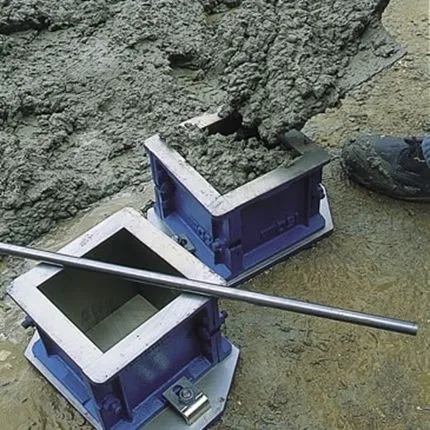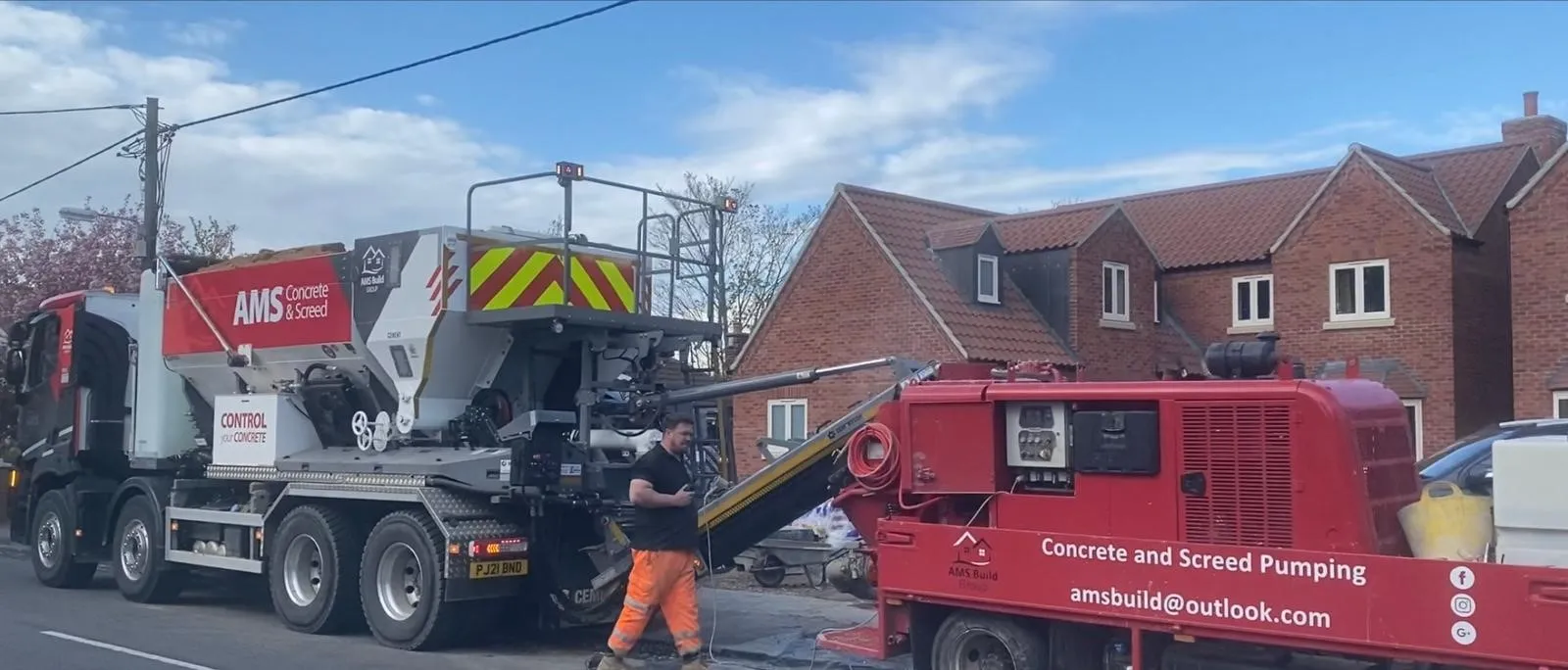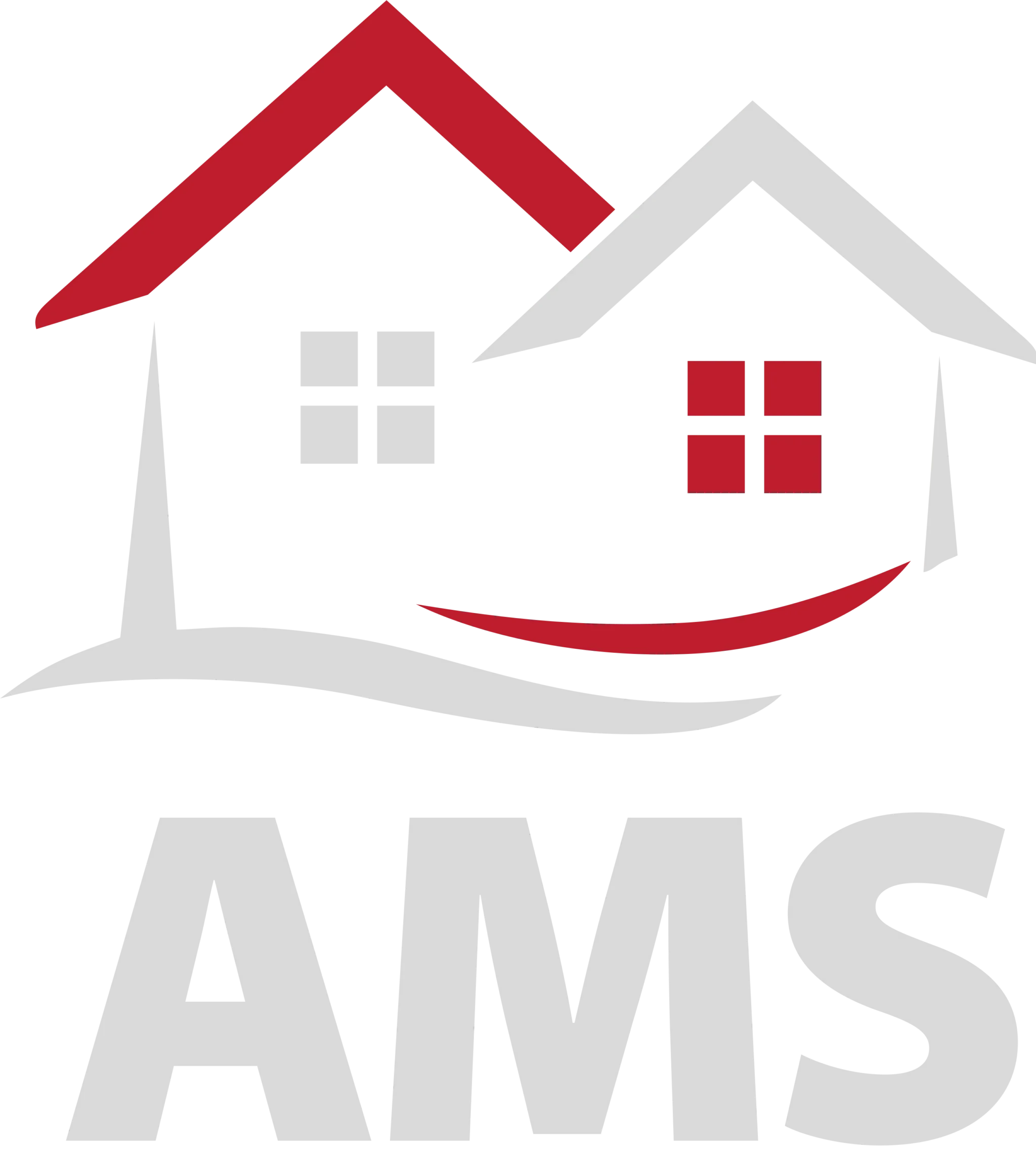Concrete Strengths and Uses
control your concrete and only pay for what you use
Concrete Types
At AMS our lorries have the ability to produce most types of concrete that are needed in the construction industry. They have mix designs loaded into the computer, so we can control any type of concrete you require from small domestic job to big commercial developments.
What does it all mean?
When you see a P300 this refers to how many kilograms of cement is used per meter cube produced.
C mixes is the strength that the concrete is expected to achieve after 28 days. So, a C20 mix should achieve 20 newton strength at 28 days.
Gen mixes are general purpose mixes and need a general minimum cement content to be included.


Standard prescribed concrete (ST) mixes are general mixes that conform to BS 8500 standards, although there are no quality standards you can assume strengths based on the values of materials in the mix.
PAV 1 and 2 are a high cement content mix with air entrained additive added that’s helps protect the concrete from frost.
We can also add other additives to the mix including super plasticiser, retardant, fibres etc
If you require any other types of concrete ring us on 01522 391872
Concrete Strengths and Uses
- Kerb backing
- Mass fill
- Cavity fill
- Haunching and backing
- un-reinforced strip footings
- trench-fill foundations
- some agricultural applications
- foundations for walls, sheds and conservatories
- drainage works
- blinding house floors
- pad foundations
- non-structural mass concrete in non-aggressive (DC-1) ground conditions
- cavity fill
- mass fill
- kerbing
- haunching
- un-reinforced strip footings
- trench-fill foundations
- foundations for walls, sheds and conservatories
- paving for steps and paths
- un-reinforced mass concrete fill
- strip footings
- Driveway, shed and workshop bases
- foundations for walls, garages, houses and extensions
- under paving for patios
- un-reinforced bases and oversites for conservatories, garages, sheds, greenhouses
- domestic garage floors with no embedded metal
- un-reinforced strip footings
- trench-fill foundations
- some agricultural applications
- drainage works
- blinding house floors
- pad foundations
- non-structural mass concrete in non-aggressive (DC-1) ground conditions
- footings for fence posts
- infilling around manholes
- small bases for external furniture, such as patios
- mass concrete fill
- shed and workshop bases
- foundations for large walls, garages, houses and extensions
- paving for patios
- unreinforced bases and oversites for conservatories, garages, sheds and greenhouses
- Driveways
- Paths
- Patios
- Garages and shed bases
- Foundations for extensions, houses, garages and large walls
- Unreinforced oversites or bases
- garage floors (not designed as suspended and not reinforced)
- shed and workshop bases
- internal floor slabs (containing no embedded metal)
- drain/channel bedding
- benching to chambers
- Re-enforced walls
- Re-enforced workshop bases
- Indoor floor slab not containing metal
- Chamber benching
- agricultural equipment stores
- foundations for environmental barrier posts and planted lighting columns
- foundations for traffic sign posts
- house and garage ground floor slabs fully or nominally reinforced, either ground bearing, suspended or over sub-floor voids
- house driveways
- domestic parking/car ports
- external paving
- domestic, agricultural and industrial paved areas such as walkways and patios
- reinforced and un-reinforced hard standings
- reinforced and un-reinforced bases for workshops, houses and extensions
- external slabbing and paving subject to industrial vehicles and machinery
- reinforced bases for commercial buildings and agricultural storage areas
